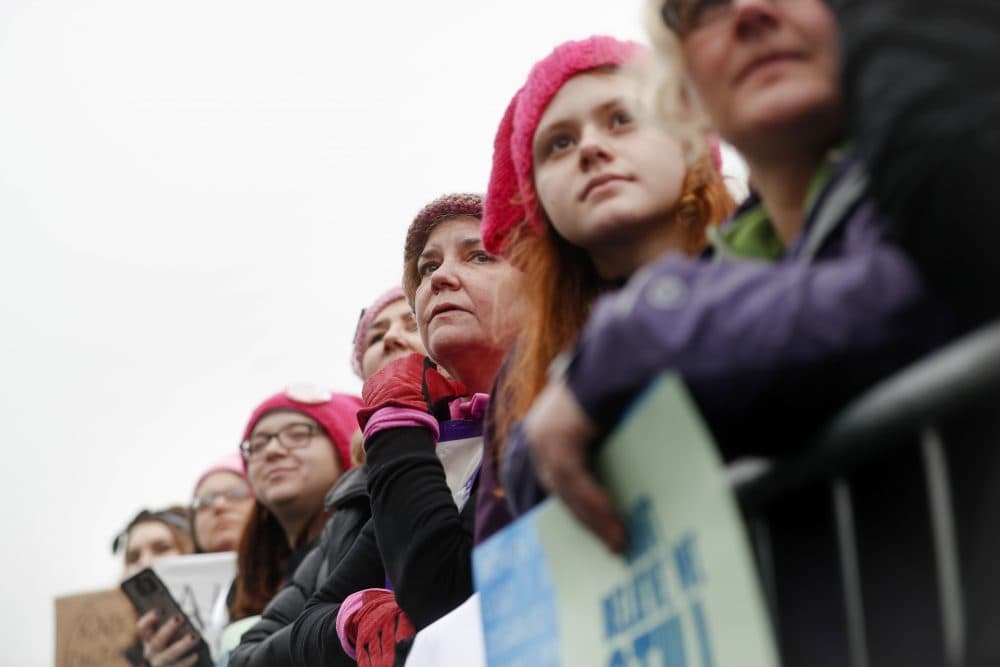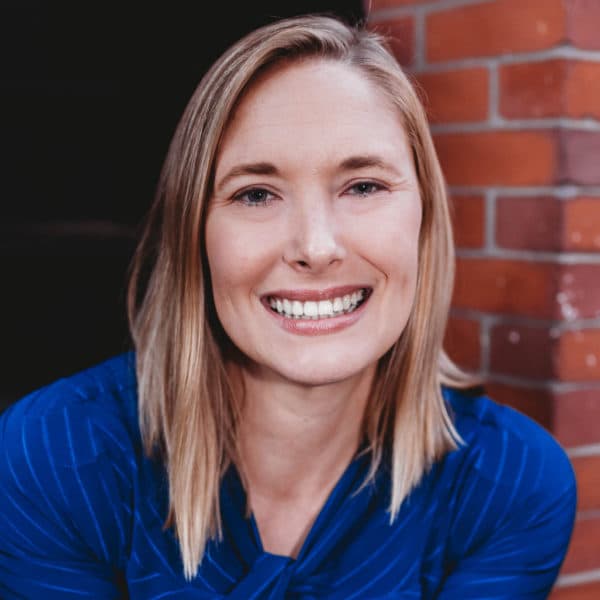Advertisement
Politics And Trump In The Age Of #MeToo
Resume
This week on Freak Out And Carry On, Ron Suskind and Heather Cox Richardson talk with Ellen Fitzpatrick, professor of history at the University of New Hampshire and author of "The Highest Glass Ceiling: Women's Quest for the American Presidency." They discussed recent sexual harassment allegations against men in the media, Hollywood and politics.
Excerpts
Ron Suskind: I've been watching, like you, like everyone, the horrific accounts of sexual harassment coming out over the last few weeks. First, of course, the accusations of sexual harassment and assault against Hollywood mega-producer Harvey Weinstein. And then the dam broke, women finally speaking out about what they only whispered about to each other for decades. And then, every day, we seem to learn of another powerful man behaving badly in Hollywood, in politics, in journalism, and, unfortunately, in about every industry, every power center in America. The hashtag "me too" opened up my eyes and the eyes of men everywhere. It's spread like a wind across fields of wheat. We saw the widespread nature of this problem. We're in an interesting moment. We, as a society, are recalibrating what we let powerful men get away with and how we judge them. And this includes presidents, from Thomas Jefferson's affair with his teenage slave Sally Hemings, to accusations against President Bill Clinton and our current president Donald Trump.
Heather Cox Richardson: I'm not at all surprised about where we are or the "me too" hashtag. I'm one of the people who used the "me too" hashtag because this has been the story of my professional life. And I guess the story of my life in general. I looked at the chat rooms, the blogs, the messages, the petition campaigns, immediately before the election and the way people rallied around presidential candidate Clinton. Then I looked at the reaction to the election of Donald Trump and saw the enormous outpouring of the women's march, which remains the largest single day demonstration in American history. I said, "women are getting involved again" and that has only ramped up since then. I've said all along that what makes this moment unique in American history in terms of domestic politics is we have women stepping up and taking control of the public narrative and of public politics in a way that they never have before.
Ron Suskind: Let's take a step back for us and ponder this moment. We have a man in the White House that has been accused of sexual harassment and assault. A lot of women felt that the November election was a punch in the gut and a big step back. And, at the same time, we have a women's march that is the largest demonstration in the history of the country. Sexual harassment is finally being confronted all over the map. How are these things connected? I mean are we at one of these points of precipitation now that we'll look back on to say that was the moment that change really happened?
Ellen Fitzpatrick: I wish I could tell you that I know the answer to that but I find it to be a completely fascinating paradox. I honestly think that since the election of Trump it's a different moment. It is a different moment. One thing I think matters is that the younger women, in particular, that are coming forward now about sexual harassment and their experiences are unafraid to own their ambition. Therefore they are willing to tell the stories without a certain amount of shame and guilt that goes with the whole experience. They're willing to come forward and say, "Yeah, I went with so-and-so to the bar. I went to have a drink because I thought he could advance my career." And that, to me, is a different generation than an earlier generation of women who would have been so profoundly ashamed even to admit that they had professional ambitions that would have led them to curry the favor of a powerful man. And so in a interesting way the so-called "post-feminist" generation has moved this conversation in a more open way than anyone might have ever predicted.
Heather Cox Richardson: The fact that women are recognizing that they have shared this history has really been brought to the fore, I think ironically, by the fact that we have Donald Trump in the White House. The behaviors that he has exhibited--and that people are now identifying in journalism, in entertainment, in academia--are ones that women understand. As I said from the very beginning, women got Donald Trump before anybody else, or before men did, because we had all worked with Donald Trump.
Ron Suskind: Many people thought this came to a head during the campaign last year. Everyone remembers--I'm sure with great vividness--candidate Trump and the infamous 2005 Access Hollywood tape. He brags about grabbing women. Many thought that was it. That was the end of the campaign. I mean, there's no doubt that he is at the center of this conversation of men brutally exercising power over women. And look, he doesn't go down. Some men end up sort of rising up to defend him. Next thing you know the man's the president of the United States. What happened during this campaign? What didn't happen that should have happened?
Ellen Fitzpatrick: Well I think part of what has happened is what's happened since he was elected. The campaign is one thing and you're hearing in his defense this effort to drag in the kitchen sink--and the sponges and the wet mop and everything else that's around--to deflect attention from the issue. He tried to couch this in terms of a giant conspiracy of these "politically correct" people who are responsible for all the evils in society or whatever is making you unhappy.
Heather Cox Richardson: I was astonished not by the "me too" hashtag but by how many men were surprised by it. You know, when we made lists of the ways American women live--not walking to your car at night, carrying your keys in such a way that you could use them as a weapon, all of those things that women do instinctively--so many of my male friends had no concept that that's how we behave. That's how we've been taught to behave and that's how we have always behaved. And that's what I found shocking about this is not only that every women had experienced this but that so many men had no idea. It just really reinforced the idea we were in a separate place. But that makes me wonder, Ellen, as we see these sexual assault allegations springing up all across America in so many different fields, what do you think is the fastest way to begin to address this deep, deep gendered problem in America?
Ellen Fitzpatrick: Well, I think that part of it is going to come from these young women themselves. It comes from the grassroots. It comes from the bottom up. It's coming from people who have lived through these experiences. And the key thing I think is the willingness to a own their ambition and to speak without shame about the experience. That is what has kept a lot of people silent over long periods of time. If you take the shame away and you're in a different sort of social and historical moment where you don't have to be ashamed of the fact that some guy treated you this way. You get enough people lined up who were saying, "oh you too." That is really what drove the women's liberation movement of the 60s and 70s. So maybe that out of all of this will come a series of connections that younger women will make and move us all into a different direction into the future. I hope so. That's what I hope for the younger women today. There are more running for office. They're more challenging the status quo.
The views and opinions expressed in this podcast are solely those of the participants and do not in any way reflect the views of WBUR management or its employees.
